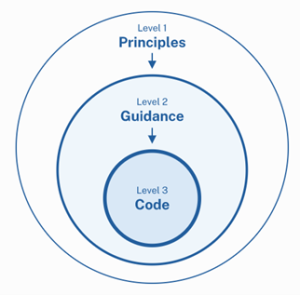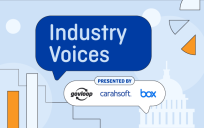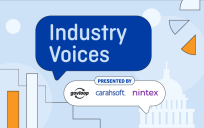There are two ways to approach innovation. A marketing approach relies on basic consumer research — brief surveys with closed-ended questions, for instance — and focuses on what people say they want. Demographic and other considerations often get ignored.
But design-led innovation looks for information that’s more personal and profound. It cares about what a user said and how they said it, and about demographics and accessibility. Diverse teams work toward a common goal and view research as an ongoing process, not a simple exercise with a clear end date.
And design-led thinking constantly experiments, testing new ideas in light of new information and avoiding preconceived assumptions about user experiences. Initiatives that are designed rather than constructed have a greater chance of success.
There’s a good example in the context of agency website development. The U.S. Web Design System’s (USWDS) maturity model encourages federal agencies to, first, follow principles in the 21st Century Integrated Digital Experience Act (IDEA). In other words, start with real user needs, earn trust with every interaction, embrace accessibility, promote continuity, and listen and evaluate. The principles “align teams across government and serve as an evaluative lens for design and implementation decisions,” USWDS explains.
Next, the maturity model calls on agencies to adopt USWDS user experience guidance. These are best practices for creating items such as “click here” buttons, search boxes, page headers, and other visual and functional tools. Not sure what colors and sizes your users most appreciate? The guidance will tell you.
Finally, agencies start the actual coding, using what USWDS calls its “design tokens” — that is, individual elements of style, such as color palettes, that make the technical development process more efficient for agency staff.
At its core, design-led innovation is human-centered, and it helps public- and private-sector entities solve complex problems in new ways, compassionately and effectively. As Albert Einstein said, “We can’t solve problems by using the same kind of thinking we used when we created them.”

Source: USDWS
Resources for pursuing a design-led approach:
- 18F Article on Barriers to User-centered Design: The article identifies key barriers — time and money shortfalls, a “we just need something to show” mindset, and others — and gives real-world guidance on how to overcome them.
- Summary of the 21st Century Integrated Digital Experience Act: Digital.gov explains what the IDEA is, what it requires and what it means for website design.
- Tips for Conducting User Interviews: 18F offers advice for capturing the best data from user interviews to support effective design-led modernization.
This article is an excerpt from our guide “Unpacking Digital Transformation.”





Leave a Reply
You must be logged in to post a comment.